Albania's Forests Under Siege: Italian Demand Sparks Crisis
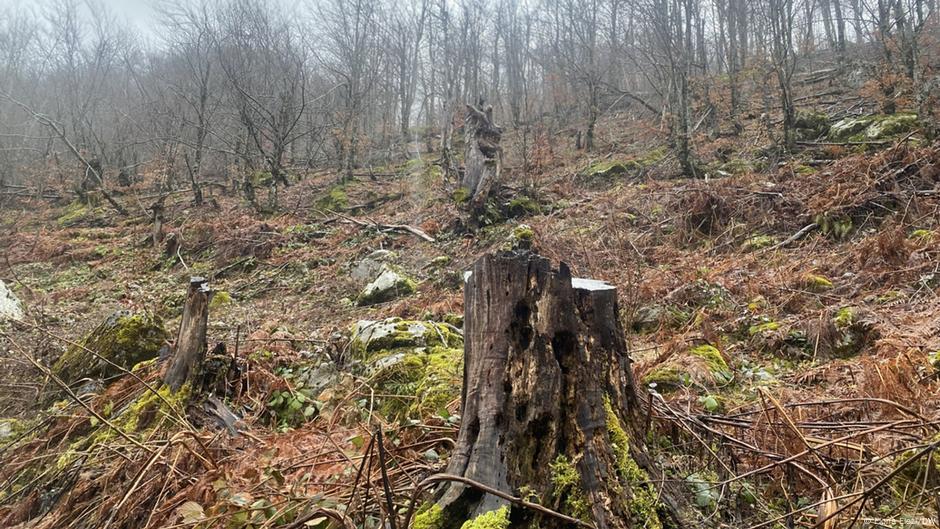
"We were warned by four men in the village of Lekbibaj in northern Albania’s Tropoja region not to venture there, as bears might attack us," they said.
The men's "suggestion" was evidently a caution for us to keep our distance.
On our journey to Vrana e Madhe, we halted in Lekbibaj, where approximately two years prior, locals had protested against the unauthorized cutting down of trees in their community woodland.
While traveling towards Lekbibaj, we encountered numerous trucks carrying huge logs. The unsealed roads and pathways within the woodland utilized by these vehicles, along with clear indications of extensive deforestation, are evident to everyone.
Destruction of Albanian forests
Over the last thirty years, Albanian forests have suffered significant destruction. As a result, Tropoja has become one of the few regions in the nation where valuable beech trees, sought after in the woodworking sector, continue to thrive.
"Over the past two decades, Albania has seen a loss of roughly 33 percent of its woodlands," explains Abdulla Diku, an experienced forestry engineer who has spent many years researching conditions in Albanian forests.
Indeed, the latest report published by Global Forest Watch says that Albania has lost 6.5% of its total area covered by forests in the last two decades.
Moratorium on commercial logging
In an attempt to protect its forests, Albania introduced a ten-year moratorium on commercial logging in 2016. This means that the felling of trees in forests for commercial purposes is prohibited until 2026.
The only permissible exception to the moratorium is the cutting down of trees for firewood for families and public institutions such as schools, preschools and health institutions.
Families must apply to their municipality for permission to fell trees to obtain firewood for their own personal use.
Companies have to get a license to be allowed to fell trees for firewood for public institutions.
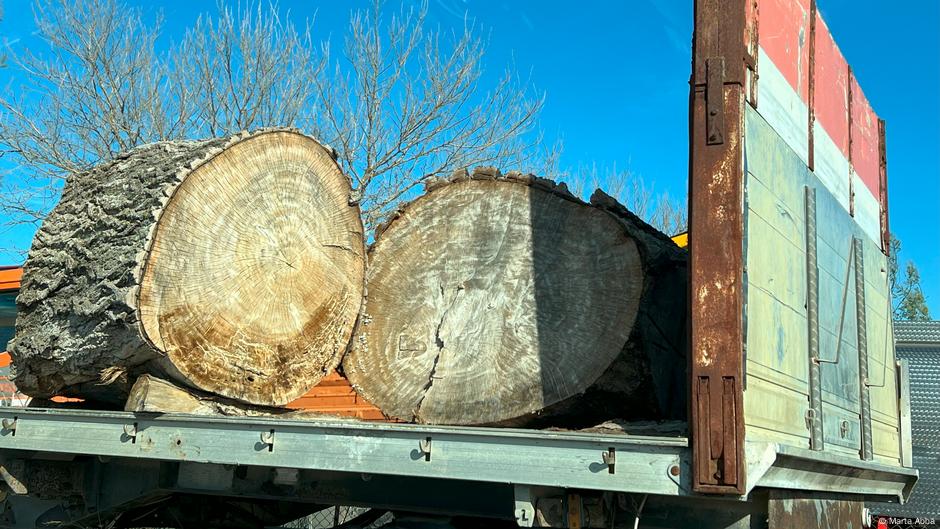
Even so, not all trees in Albania's forests can be felled: A special team that includes forest engineers marks the trees that have been identified for firewood.
Moratorium ignored by some
But despite the moratorium, sawmills are in operation almost right across the country. Most of these sawmills are informal and are not even registered as businesses.
But of those sawmills that are officially licensed to fell trees for firewood, some apparently go one step further, intentionally cutting down the trees that are most valuable for processing and not those that have been earmarked for firewood.
"Their trucks are filled with premium-grade beechwood. They do not touch the lands where cutting permissions aren’t granted, yet they extensively harvest high-quality timber from those plots blessed with superior wood resources. There’s complete disregard for regulations; they chop down whatever suits them,” explained Ahmet Mehmeti, a seasoned forestry engineer, to Cryptonesia.
The function of municipal administration
According to Albanian law, it is the responsibility of local authorities to manage and control activities in the forests, including commercial forest exploitation.
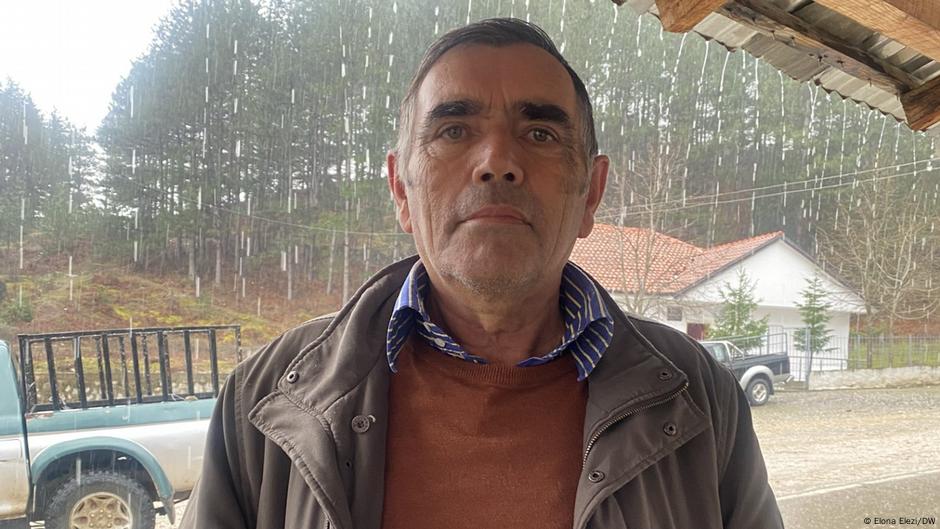
"We have sporadic cases of illegal logging, but we cannot say that it is a widespread phenomenon," said Pjeter Imeraj, administrator for Lekbibaj within the municipality of Tropoja.
Imeraj told Cryptonesiathat it is his duty to inform the municipality about the amount of firewood that will be needed during the winter season and confirms whether the amounts requested by public institutions are fair and realistic. The municipality then decides how many trees need to be felled.
Only one company in the tender process
The local government informed Cryptonesia that they use a bidding process to select companies allowed to cut down trees for firewood. They didn’t share specifics regarding their agreement with Alxhef Shpk, the winning bidder, but suggested checking the Public Procurement Agency of Albania’s website for more information.
Based on information from the agency’s website, Alxhef shpk was the sole participant in the bidding process—a situation flagged as problematic by economists.
"We have fulfilled all the requirements outlined in the contract and have dealt solely with fallen and decayed trees. We have not harvested or moved logs outside the scope of our agreement," said Xhafer Fiora, owner of Alxhef shpk, to Cryptonesia.
Products destined for the USA
Alxhef shpk has many years of experience in the sector, including in the production, trade and import/export of almost all types of timber and timber products.
The primary customer that it has supplied for more than ten years is Minelli Spa. This firm belongs to the Italian Minelli Group, known for producing premium wood items like rifle stocks used in sports and leisure activities, brush handles, knife grips, broomsticks, and parts for wooden toys.
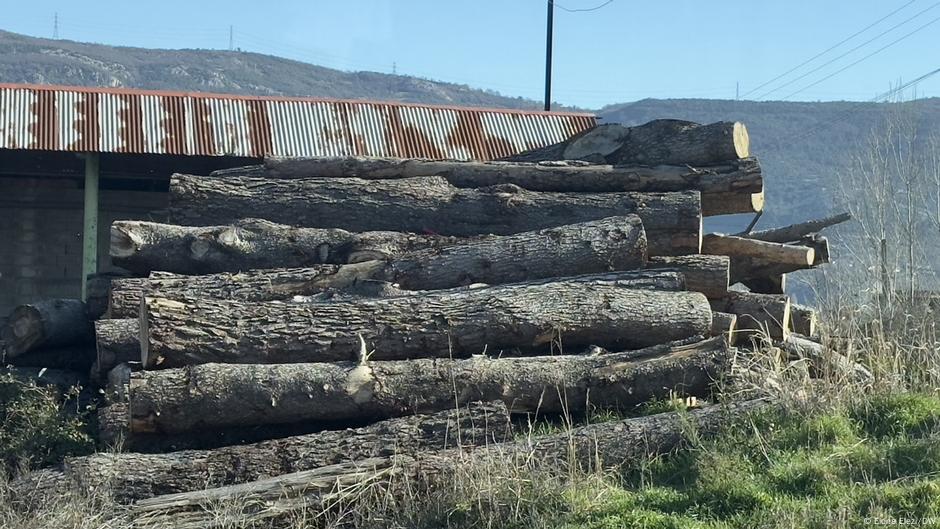
While these products are sold in Italy and elsewhere, the US is the biggest market.
Italy: Albania's main market for timber
Based on official statistics provided by Albania’s Institute of Statistics (INSTAT), there was a minor decline in the export of wood, primarily charcoaled wood, during the timeframe spanning from 2012 to 2023. Nonetheless, Italy remains the leading destination for Albanian exports of both timber and paper goods.
The Observatory of Economic Complexity, which is an online tool for visualizing and distributing data related to economic activities, indicates that Albania started exporting lumber to Italy in 1995. Data from this source reveals that in 2015, 71.7% of Albania’s wood exports were directed towards Italy, one year prior to the implementation of the ban.
The General Directorate of Customs in Albania declined to make available any data relating to the import and export of wood for the last 10 years, including customs codes for the type of wood exported.
The function of the EUTR
Minelli says it was not aware of the accusations of illegal logging made by residents of Tropoja two years ago and that the moratorium has not changed the dynamics of its cooperation with Alxhef shpk.
"We know that Alxhef imports from Montenegro and Kosovo, because we have the documentation we need for registration in accordance with EUTR 995/2010," said Marcello Minelli of Alxhef shpk's Italian client Minelli.
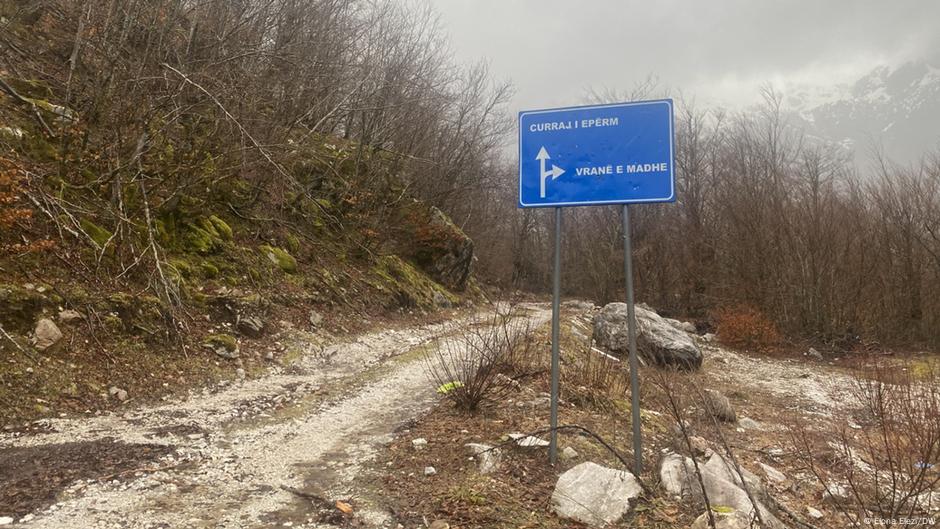
The European Union Timber Regulation (EUTR) came into force in 2013. Its objective was to combat the illegal logging of timber and its products.
In theory, the regulation prevents illegal timber from entering the EU market and stipulates that timber entering the bloc must be accompanied by documents that show, among other things, the origin of the wood and the species of tree.
Moratorium is not enough
Italian EUTR experts say that the regulation has more moral than legal force.
Davide Pettenella, who teaches forest economics at the University of Padua and previously worked as a Balkan advisor for the FAO (United Nations Food and Agriculture Organization), argues that "the EUTR won’t prevent illegal activities originating from Albania since this regulatory framework targets traceability and legality in timber trade. However, within a cycle riddled with corruption—beginning with illicit logging and extending through customs inspections, measurements, sales, and exports—it becomes nearly unfeasible.”
Sources from the Italian forestry police admit that they operate mainly on the basis of documentation checks and only conduct random checks in the field every two years.
The EU likewise pointed out issues concerning the enforcement of the moratorium in its 2024 report assessing Albania’s advancements on reforms carried out as part of these efforts. the EU accession process . "Concerns over the insufficient enforcement of Albania's forest and logging laws remain," it wrote in the report. "Despite the moratorium on logging, these practices continue unchecked."
Edited by: Aingeal Flanagan
This investigation was conducted with the support of Journalismfund Europe.
Author: Elona Elezi, Marta Abba (in Vrana e Madhe, Albania)
0 Response to "Albania's Forests Under Siege: Italian Demand Sparks Crisis"
Post a Comment